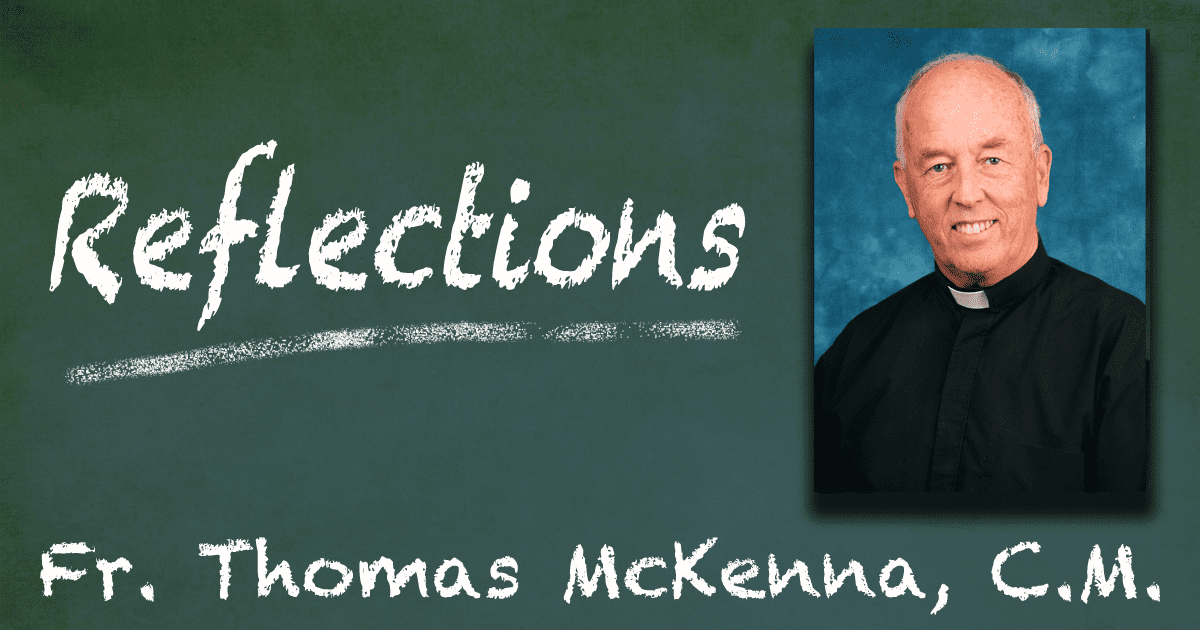When trying to get across something that’s dear and important, it’s often the case that actions communicate better than words. An instance is the difference between a man telling a woman he loves her, and that same man standing in front of an altar putting a wedding ring on her finger. That gesture with the ring catches more of the significance, meaning and depth of what is happening than the words. In addition, that ring will continue to stir up the power and depth of that pledge for years into the future.
The feast of Corpus Christi, the most Holy Body and Blood of our Lord, touches on this difference between language and action — the difference between the words spoken at that Last Supper (necessary as they are) and the more profound meaning and deeper life conveyed when actually sharing in this hallowed meal.
In this Last Supper scene, we hear so many echoes of that key event in the history of the Jewish nation, the establishment of the Covenant, God making that pact with His people through Moses’ action at the foot of the mountain.
Moses is carrying bowls filled with the blood of the animals sacrificed earlier as offerings. Half he splashes on the altar, which symbolizes God. The other half he sprinkles on the Hebrew people, telling them it is through this ritual action that the pact between them and Yahweh, “the Covenant,” is being established. The Lord speaks, “You will be my people and I will be your God.” And the people respond, “All that the Lord has said, we will heed and do.” It is that action, blood being sprinkled on both altar and people, that acts out and seals the bond between the Hebrews and their God. As Moses declares, “This is the blood of the covenant that the Lord his made with you.”
As He hosts that Last Supper, Jesus is folding this earlier, dense meaning into a new and still deeper pledge, the New Covenant. The blood now to be shed and sprinkled is his own blood, dripping down from his crucified body as he gives His whole self over to his Father for us, for our rescue and salvation.
This action spills over with significance for every one of us. It enacts the New Covenant, the one that opens the channel between us and God in a permanent and unbreakable way. It is the event, the deed filled to the brim with so much meaning and effectiveness and saving consequences for all.
It is this very encounter that we reenact in ritual form every time we gather around the altar to take part in the breaking of the bread and the drinking of the cup. The sharing recurs over and over when at the Eucharist we are taken into the presence of the Body and Blood of the Lord Jesus, poured out in love for us.
Coming to Mass, we enter into this healing action, this happening filled with the meaning of that Covenant: “I will be your God and you will be my people.” Or the much the same in Jesus’ cherished image, “I will be your Shepherd and you will be my flock. I will lead and protect you. And recognizing the sound of my voice, you will follow behind.”
As mentioned at the beginning, there are actions that in their very enactment communicate more depth and meaning than the words that surround them. This action of Eucharist is the prime example of that for believers.
Every time we open ourselves to what is happening within and around it, we are being brought into God’s saving presence. We are reentering the reconciling sacrifice Jesus forever makes, His Body and Blood being poured out for us in unconditional love. In his own way, St. Vincent underscores the sense of this when he writes, “It is Jesus’ good pleasure that we always remain in the joy of His love.” (Vol 1, p. 35)
To share in this Eucharist is to step into the present-day fashioning and fleshing out of this New and Eternal Covenant. It is the encounter that binds us to the ever-faithful God, carrying the Divine love to us as poured out through The Spirit of Christ Jesus.






0 Comments